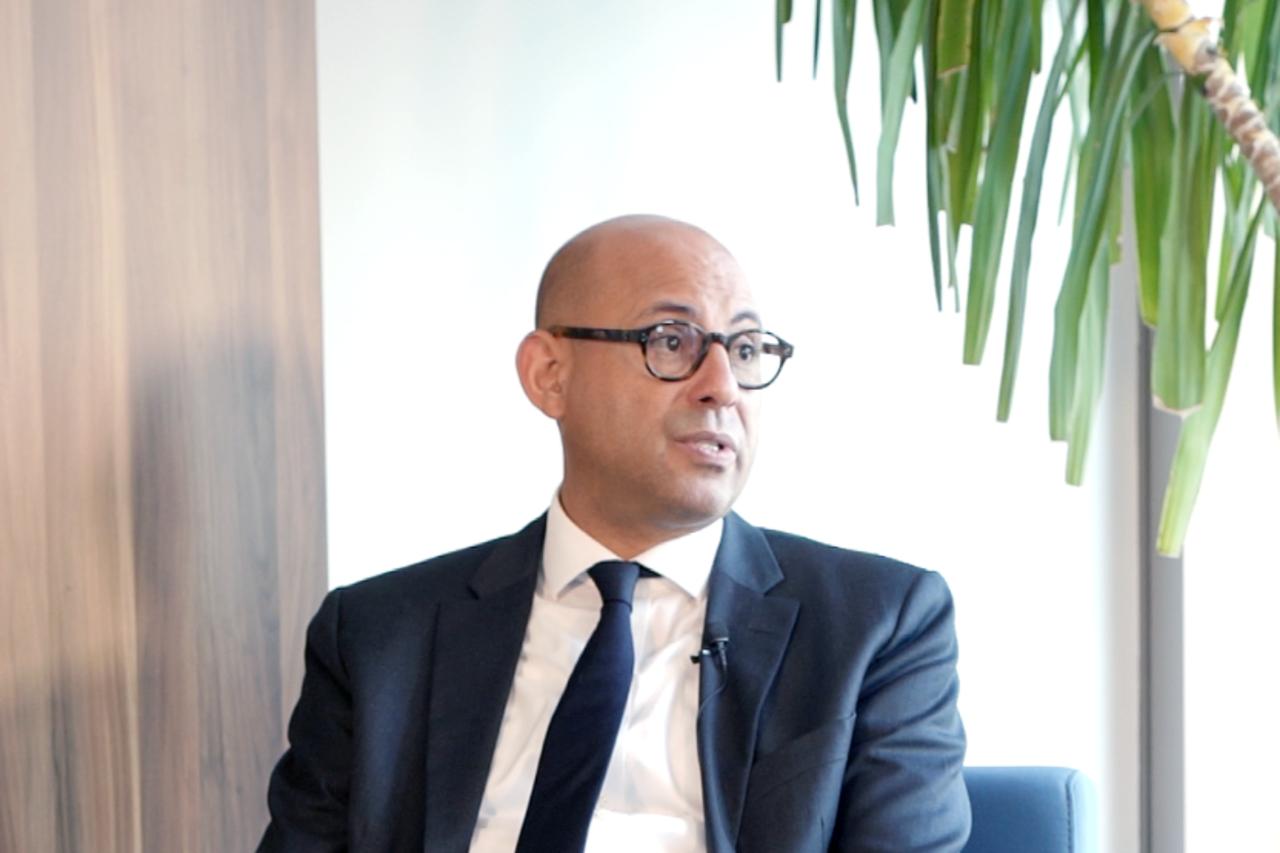
Green transformation in Türkiye offers a chance to drive economic growth and lead to higher job opportunities, energy security, and improved living standards, the Executive Secretary of the United Nations Climate Change Simon Stiel told UNDP team in Istanbul.
During his two-day visit to Türkiye, Stiell met with Turkish civil society, business leaders and government ministers. "Eighty percent of new power additions here in Türkiye were through renewables. So, the country is on the right path," Stiell said. "The challenge is how to reduce the consumption of fossil fuels."
In June alone, the country's electricity generation from wind and solar sources accounted for 29.6% of its total electricity production, a marked increase from previous years. UNDP plays an active role in pushing countries like Türkiye to further increase their electricity production from renewable sources.
UNDP supports developing countries to achieve their NDC priorities and deliver the Paris Agreement goals with 30 UN agencies in over 115 countries. The programme, steered by the UN Secretary General, intends to deliver a coordinated offer to countries on preparing more ambitious climate pledges ahead of COP30, the United Nations Climate Change Conference, which is set to be hosted by Brazil in November.
Stiell noted that Türkiye's fuel import bill over the last two decades was over $1 trillion. "Transitioning away from the insecurity of those fuel sources to renewables will not only increase your energy security, but it will also bring savings," he added.
Speaking to UNDP Türkiye's Goodwill Ambassador Mert Firat and sustainability communicator Damla Ozluer, Stiell emphasized the large amount of savings that renewable energy can provide.
"As recent studies show, the faster you accelerate towards renewables, the more you lower your dependency on fossil fuels; the savings can go up to $3 billion per year. The financial savings are significant."
Stiell also pointed out that such savings lead to lower costs of energy and manufacturing and increased economic competitiveness. "Bringing down your carbon footprint opens new markets such as the EU, one of Türkiye’s major export markets." Türkiye's exports to the EU reached $57.7 billion in the first half of 2025.
"So, the business and economic case to move forward in this direction is a compelling one, and Türkiye is well positioned to take full advantage of that, to the vast benefit of the Turkish people," Stiell concluded.
"We are at a tipping point," stated Stiell. "We're seeing accelerated climate impacts continent by continent, region by region, country by country, and community by community. No space on this planet hasn't been impacted, and those impacts are accelerating."
Stiell noted that the actions taken by the global community were not sufficient nor adequately fast enough; however, progress was being made, and some countries have started to lead with their actions. "We're seeing technologies becoming available. We're seeing the cost of renewable energy falling below the cost of fossil fuels," he said.
"The challenge for us is how do we scale that up, and how do we speed that up so we can go further and faster on climate action?"
"Focusing on fear does not create momentum," UNDP Türkiye's Firat pointed out. "So, we talk about the challenges, we talk about the crisis, but within that are massive opportunities," Stiell added.
"The creation of green jobs, the creation of new industries, and the bringing down of the cost of energy. That has a positive impact on daily lives. Living healthier lives in less polluted cities, and so on. The benefits are clear," he said.
Answering Ozluer's question regarding nationally determined contributions (NDC), Stiell said Türkiye should approach its next NDC "with ambition, with intent," and not only in terms of setting ambitious targets.
"Target setting is one thing, but that's just a number on a piece of paper. What matters is taking the necessary actions to implement them," Stiell stated. "And that is the distinguishing feature of this third generation of national climate plans (also called NDCs) due from all countries this year under the Paris Agreement."
Stiell noted that if all signatory countries of the Paris Agreement delivered on their commitments, "we then stand a good chance of attacking this crisis."
Explaining the technical aspects of the term NDC, Stiell said that it is basically a climate plan that covers all sectors of the economy.
Stiell noted that those commitments—whether they create jobs or lead to healthier conditions—were for the better of households, businesses, and ordinary citizens.
"(At its) heart, a climate plan is about actual people. It speaks about resilience building, it speaks about improving livelihoods, and it speaks of the strength and well-being of communities and households," Stiell said.
"So, it's really people at the heart of that, the people and the economy."
"Take the UNFCCC process, one that seems very abstract from the real world," Stiell pointed out.
"But this is the only space where close to 200 countries come together with the single aim of solving this climate crisis. Through this process, humanity is making progress, but not quickly enough. That’s why we need to see strong climate plans from all countries this year. That is entirely in every country's and every economy's own interests."